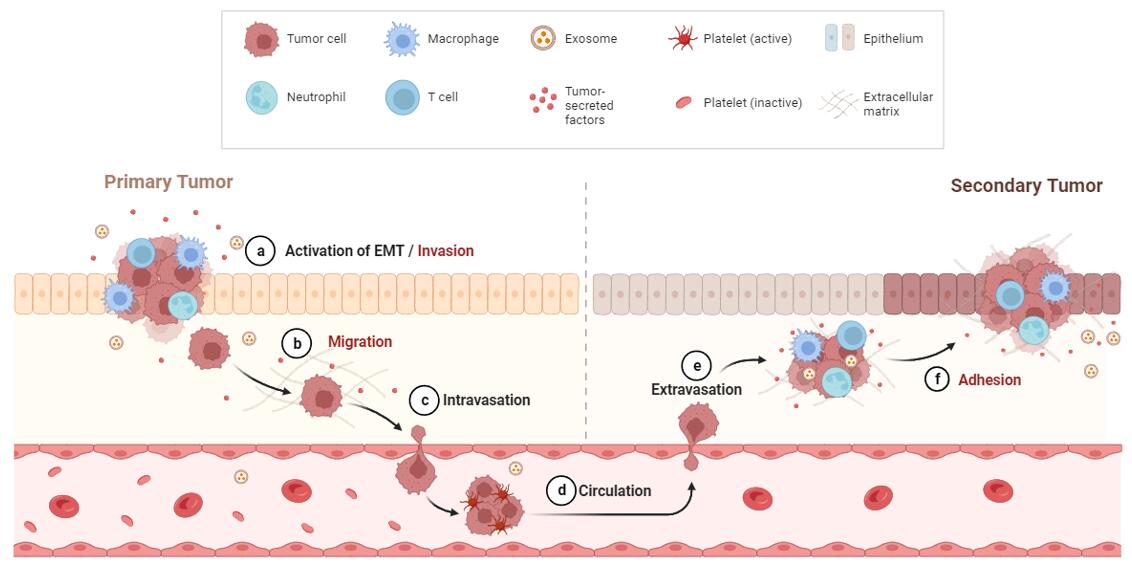Metastasis is defined as 'the process of dissemination of cancer cells from their origin to a distant organ', a complex process involving several stages, which are as follows: (a) the activation of epithelial–mesenchymal transition (EMT), during which cancer cells lose all cell–cell contact, such as substrate adhesion, acquiring ownership of movement; (b) local invasion, whereby malignant cells degrade the basal lamina, the special extracellular matrix that organizes and separates epithelial tissues from the stroma, which plays an important role in both cell signaling and being a reservoir of growth factors released by tumor cells; (c) intravasation, during which tumor cells pass through the walls of blood vessels and enter the bloodstream; (d) the ability to survive in the bloodstream; (e) extravasation, whereby tumor cells exit the bloodstream, passing through the walls of blood vessels into the tissue of a particular organ; (f) establishment of tumor cells in the tissues of the organ where metastasis will form; in other words, the establishment of a pre-metastatic niche to create a favorable environment for the growth of cancer cells.[1,2]
 Figure 1. The sequential steps in the pathogenesis of metastasis
Figure 1. The sequential steps in the pathogenesis of metastasis
Tumor Metastasis, the leading cause of death in most solid cancers, underscores the imperative to comprehend the intricacies governing cancer progression. Our objective is to unravel the mechanisms dictating cancer progression and metastasis, aiming to unearth novel implications for clinical applications.
By deconstructing the metastatic cascade and analyzing individual stages, such as invasion of the local tissues by degrading ECM protein components, cell migration across endothelial barriers, cell responses in the bloodstream under shear stress, and adhesion mechanisms, we can gain valuable insights into the invasion and spread of cancer. Creative Bioarray's comprehensive approach to studying metastasis is poised to yield groundbreaking breakthroughs in research, offering the promise of novel findings with potential applications in clinical settings.
References:
1. Arvelo F, Sojo F, Cotte C. Tumour progression and metastasis. Ecancermedicalscience. 2016 Jan 29;10:617. doi: 10.3332/ecancer.2016.617. PMID: 26913068; PMCID: PMC4754119.
2. Yokota, J. "Tumor progression and metastasis." Carcinogenesis vol. 21,3 (2000): 497-503. doi:10.1093/carcin/21.3.497
Online Inquiry